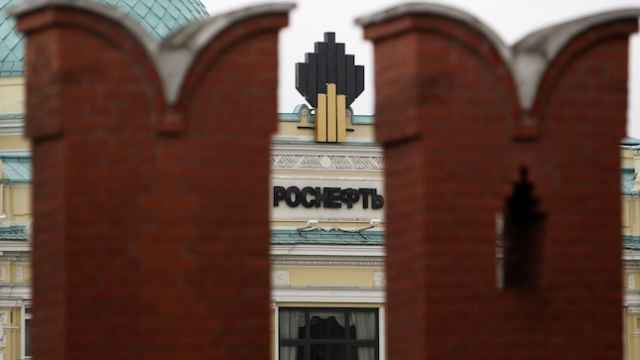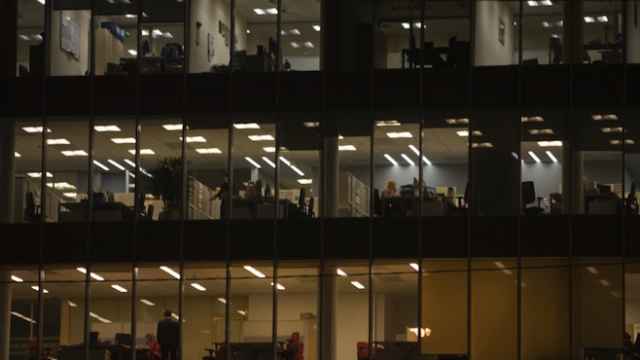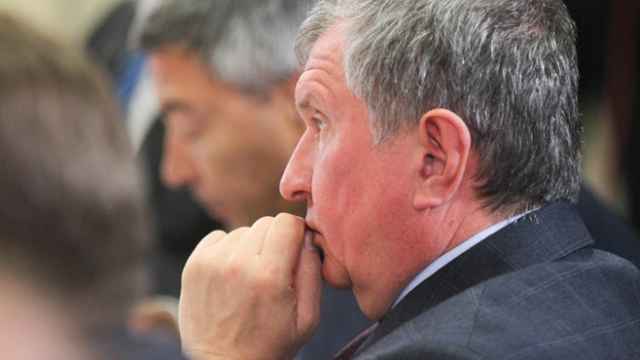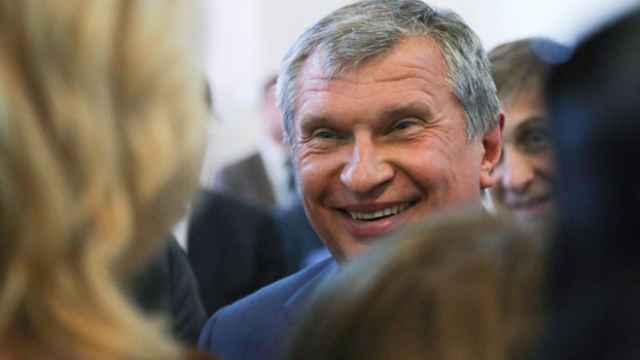Igor Sechin, head of state-owned oil company Rosneft and a close advisor to President Vladimir Putin, is building a new $60 million mansion on land close to a presidential residence outside Moscow, the Vedomosti newspaper reported Wednesday.
Sechin, his children, and Varvara Sechina, whose relationship to Sechin is unknown, own three plots of land in the exclusive Moscow suburb of Rublyovka, Vedomosti reported. The land has a joint market value of $110 million.
A nearby property previously owned by Sechin was also given to his ex-wife, whom he divorced in 2011.
Satellite images published by Vedomosti show a palatial mansion being constructed on the central 3 hectare plot, ringed by a perimeter fence and surrounded by pine forest.
Sechin, a friend of Putin who has been dubbed "Russia's second most powerful man" has led Rosneft since he left his post as deputy prime minister in 2012. He currently receives a base salary of between 15 and 20 million rubles ($295,000 - $390,000) a month, as well as additional payments for sitting on the board of directors and for handling classified information. Sechin’s son Ivan, an owner of one of the Rublyovka plots, is the vice director of joint projects at Rosneft.
Yekaterina Ignatovaya, wife of Sergey Chemezov, the head of state industrial company Rostec, also owns a recently finished house close to Sechin’s properties. The house has now been put on the market for undisclosed reasons. A unnamed Vedomosti source claimed that Ignatovaya “had fallen out with her neighbors.”
“A lion will lie peacefully next to a lamb before Sechin and Chemezov are neighbors,” the source said. “Their interests too often collide.”
Seven houses owned by the former co-owners of the YUKOS oil company, which was forcibly broken up for alleged tax offenses and declared bankrupt in 2006, are also close to the development.
A Message from The Moscow Times:
Dear readers,
We are facing unprecedented challenges. Russia's Prosecutor General's Office has designated The Moscow Times as an "undesirable" organization, criminalizing our work and putting our staff at risk of prosecution. This follows our earlier unjust labeling as a "foreign agent."
These actions are direct attempts to silence independent journalism in Russia. The authorities claim our work "discredits the decisions of the Russian leadership." We see things differently: we strive to provide accurate, unbiased reporting on Russia.
We, the journalists of The Moscow Times, refuse to be silenced. But to continue our work, we need your help.
Your support, no matter how small, makes a world of difference. If you can, please support us monthly starting from just $2. It's quick to set up, and every contribution makes a significant impact.
By supporting The Moscow Times, you're defending open, independent journalism in the face of repression. Thank you for standing with us.
Remind me later.





